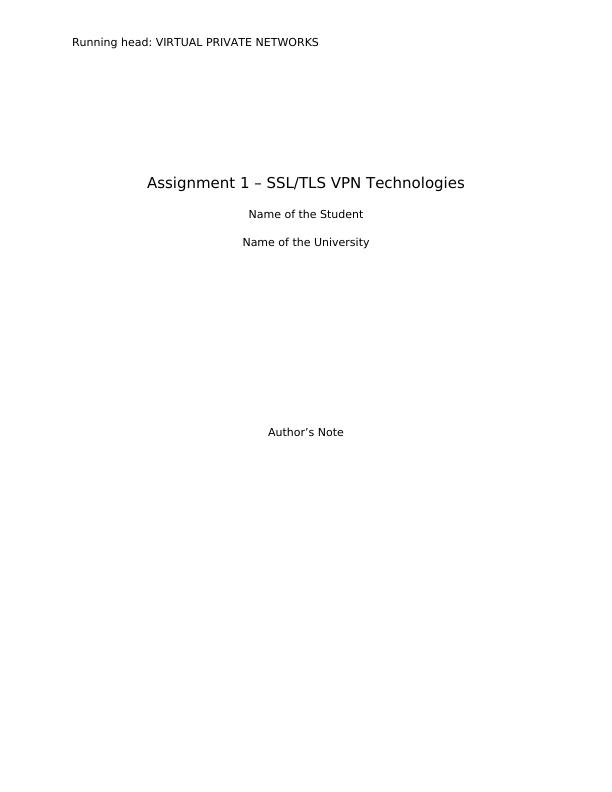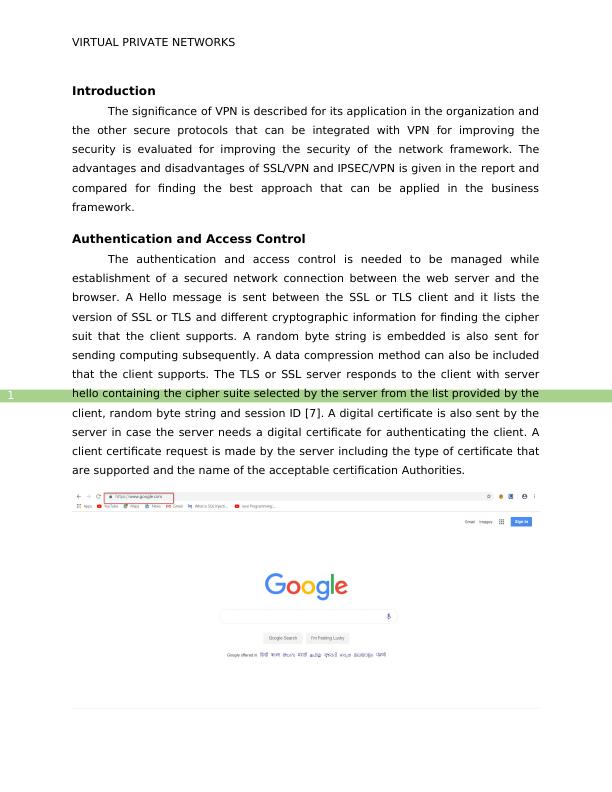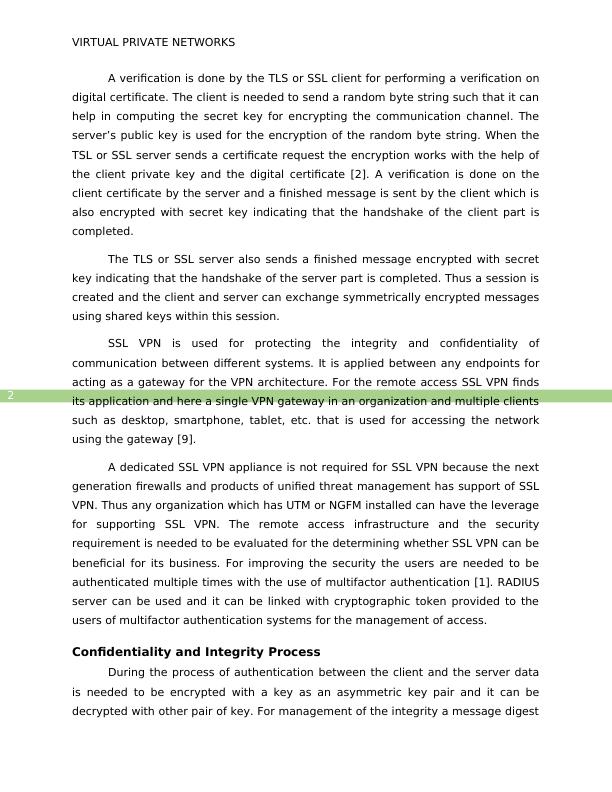SSL/TLS VPN Technologies for Secure Network Connection
Review existing literatures on VPN technologies and issues and write a report.
8 Pages2000 Words419 Views
Added on 2022-11-18
About This Document
This report evaluates the significance of VPN and the integration of secure protocols for improving network security. It compares SSL/VPN and IPSEC/VPN and discusses the advantages and disadvantages of each. The report also discusses the process of authentication and access control, confidentiality and integrity, VPN client software options, and protection against replay attacks.
SSL/TLS VPN Technologies for Secure Network Connection
Review existing literatures on VPN technologies and issues and write a report.
Added on 2022-11-18
ShareRelated Documents
End of preview
Want to access all the pages? Upload your documents or become a member.
TLS/SSL Handshake with RSA and DHE - Desklib
|16
|2305
|399
SSL Handshake: A Process for Secure Communication between Client and Server
|5
|774
|344
Advanced Network Security: Cryptography, Access Control, Firewalls, and Wireless Network Security
|11
|1783
|206
SSL/TLS VPN Technologies
|7
|1361
|55
VPN Technologies and Security
|9
|2031
|99
Wireshark Lab: SSL v7.0
|15
|2052
|219



